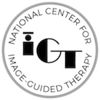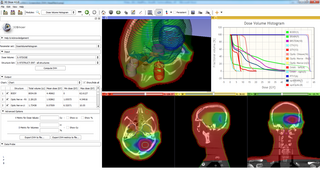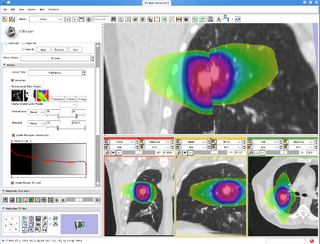AAPM 2012

| ||||

|

|

|

|

|
Introduction


3D Slicer, is a free, open source software package for visualization and image analysis. 3D Slicer is natively designed to be available on multiple platforms, including Windows, Linux and Mac OS X.
The goal of the user group meeting is to bring together current and prospective 3D Slicer users and developers to discuss of 3D Slicer's present and future as a radiation therapy software application.
Logistics
- Date: Monday, July 30, 2012
- Time: 12:30PM-2:00PM
- Location: Trade Room, Westin Charlotte, Charlotte, NC
Organizers
- Gregory Sharp, Nadya Shusharina, James Shackleford, MGH
Program
- 12:45-1:00 Presentation: "3D Slicer version 4.1", Greg Sharp
- 1:00-1:15 Live demo: "Dicom RT and data visualization", James Shackleford
- 1:15-1:30 Live demo: "Dose comparison and dose volume histograms", Nadya Shusharina
- 1:30-1:45 Live demo: "Deformable registration and dose warping", Greg Sharp
- 1:45-2:00 Group discussion
Registration
Registration is not required, but please consider registering to help us plan the meeting program.
Meeting Minutes
It was a small room, and very crowded. Attendance of 20-25 people. The audience was a mixture of clinical physicists, students, post-docs, and industry scientists.
- There was considerable discussion about radiotherapy extensions to 3D Slicer, and the development roadmap for plastimatch and SlicerRT; audience members suggested that it would be simpler for users to have a single download for RT extensions
- Improved support for RT structure sets was considered a high priority
- Additional support for developers, such as better documentation and tutorials, was requested
- There was interest in distribution of 3D Slicer as an image processing application to be used with specialized commercial imaging hardware
- More/better registration tools were requested:
- Tools that can be used to evaluate registration quality
- Better interactive registration tools
- Registration algorithms that can use multiple inputs (such registration using both structures and images)
- Support for registration masks in plastimatch
- Feature-based structure registration
- Dose calculation tools were requested
- Better DICOM-RT import/export
- Better documentation of radiotherapy tools was requested
Thanks very much to the audience for giving up their lunch hour to attend the meeting! See you next year in Indianapolis. AAPM 2013